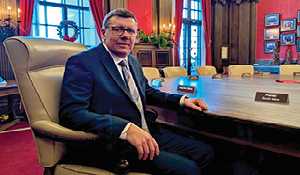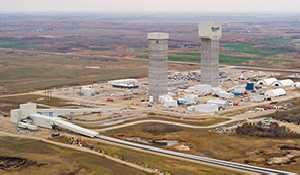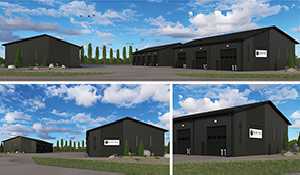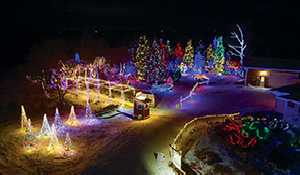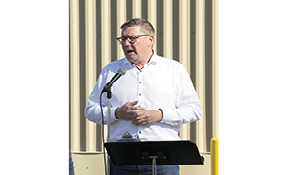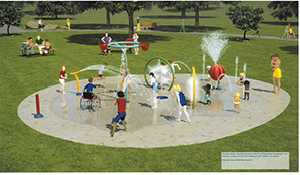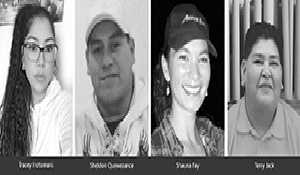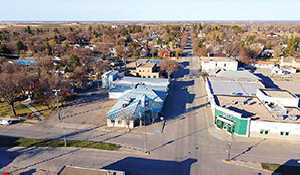Moe praises towns for welcoming refugees
“The most powerful thing that I’ve seen thus far is this story in Moosomin”
May 10, 2022, 2:44 pm
Kevin Weedmark
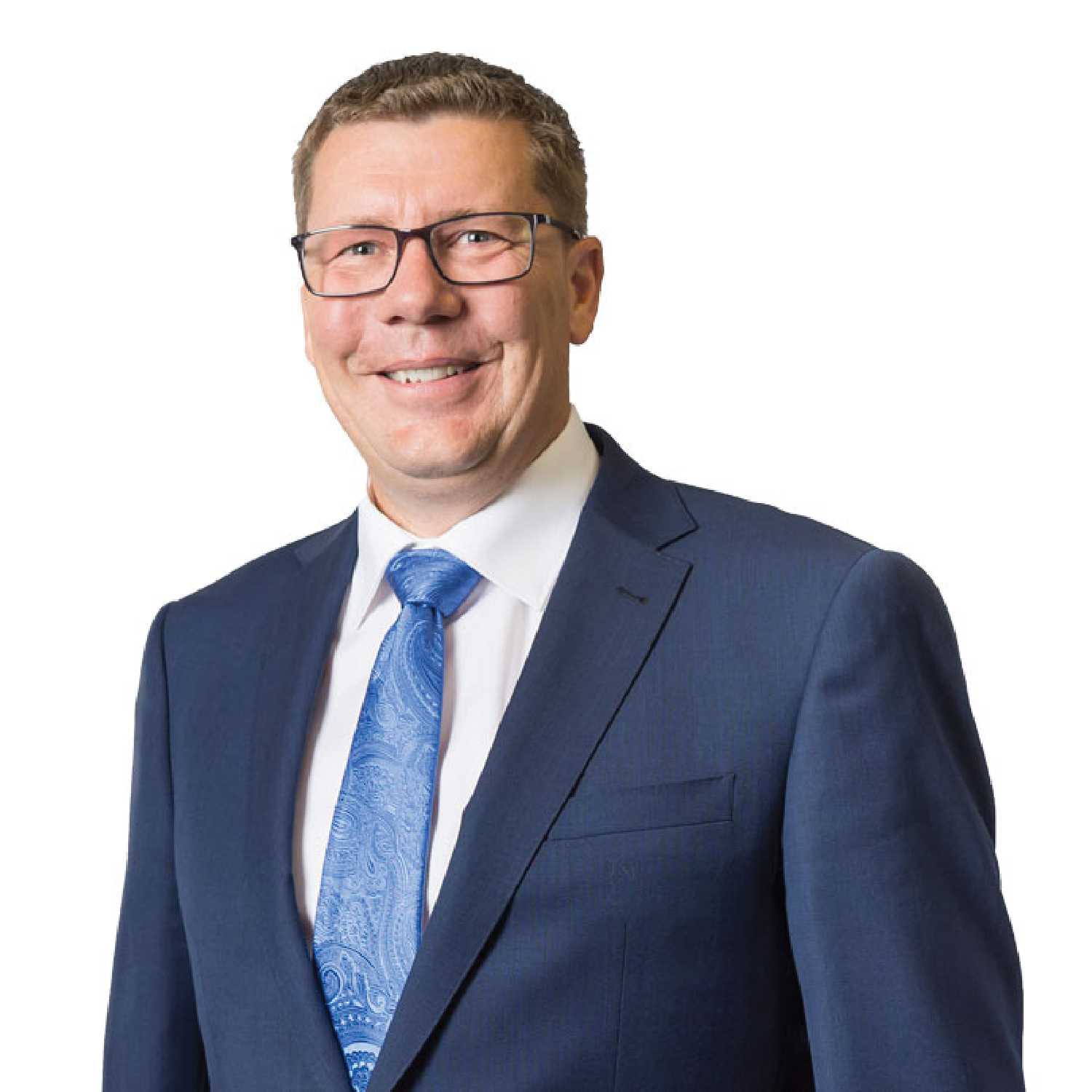

World-Spectator Editor Kevin Weedmark and reporter Sierra D’Souza Butts interviewed Saskatchewan Premier Scott Moe last week about the provincial approach to Ukrainian refugees. The premier said that the welcome refugees are receiving from small communities like Wawota and Moosomin is the most important part of welcoming refugees to the province. The full interview follows:
What are some of the things that the province has done to try and make things easier for Ukrainian refugees to come to Saskatchewan?
We’ve been engaged on our response to the Russian invasion of Ukraine for some time. The lead on this effort has been our liaison to the Government for Ukrainian relations, Terry Dennis. We actually just had him over in Berlin. He’s been meeting a number of times with SURAC, our Saskatchewan Ukrainian Relations Advisory Committee, which does provide advice to the government on all things related to Ukraine and the Ukrainian people here in Saskatchewan, as well as those back home in Ukraine, or wherever they may be in the world.
His advice back at that point in time was to raise awareness of the need for funds, which, as you know, Moosomin has participated in, in a tremendous way just this past weekend. We had provided some funds very early, to really raise awareness of where those funds can and should go so that they’ll be effective for Ukrainians on the ground.
We raised the Ukrainian flag, here at the legislature just to again, raise awareness. We started to look at the Saskatchewan Immigrant Nominee Program, how that dovetails with the Federal Refugee and Immigration Program. We were on the phone with Minister Sean Fraser, the federal minister, on how we can assist or provide capacity, but also assist in fast-tracking the process for those that do get out of Ukraine, on how we can house them here if they want to come here. How do we fast track that process? We’re still working on that and in fact, I’m going to be talking to, hopefully, Minister Fraser, and I’ve actually even reached out to the Ukrainian Ambassador to Canada, to have a conversation about what more Saskatchewan can do to support those Ukrainians that have been displaced.
More recently we have started to see Ukrainian refugees arrive in the province. We changed some of the laws here in Saskatchewan so that we could grant Ukrainian refugees a health card immediately so that they can access health services immediately should they need them. We did this also during the Syrian refugee influx that we had a number of years ago, and we really just mirrored that process.
We also put together an intake centre in Saskatoon, really to link incoming families, understanding that often they’re families that have been divided. What I saw, in my time in Kassel, Germany visiting with some displaced Ukrainians there, was that the men had largely stayed back to fight, and that what we were seeing was women and children who had fled, so we’ve put together an intake centre in Saskatoon that is really there to link folks to childcare, to link them to some temporary or permanent employment, to link them to all of the supports that we have, whether they will be provincial supports, municipal supports, or whatever they might need.
When I was over there, we met with a number of Ukrainian folks that were in a shelter—there are three shelters in Kassel, Germany. We very quickly realized through talking to the embassy—the Ambassador to Germany was there, Stéphane Dion—that we needed to get some of our provincial immigration officials on the ground to augment the federal effort and for any of those that would choose to come to Saskatchewan, to be there to support them and to fast-track that process and to ensure that they are being pointed in the right direction and in many cases are very qualified immigration officials to actually do some of the documents for the federal government, and that’s what we’ve continued to ask the federal government is to allow our provincial officials to spread their wings a bit with folks that are on the ground there.
Does Saskatchewan have people on the ground now?
In Berlin we do, yes. Terry Dennis went about a week and a half ago. He took our immigration officials over there and spent a couple of days on the ground in Berlin. We have a number of Saskatchewan provincial immigration officials that are on the ground helping our Canadian immigration officials, and ensuring that any Ukrainians that may want to come to Saskatchewan have the supports they need, so we do have folks in Berlin, today.
Towns across Saskatchewan are doing what they can to help settle Ukrainian refugees. In Moosomin’s case, they’ve raised just a phenomenal amount of money already and they had a great fundraiser on the weekend. In Wawota’s case, they have a refugee committee, and they are hosting one of the first refugees to arrive in our area, he actually landed in Saskatoon on Thursday, got some of his paperwork done up there on Friday and on Saturday drove down to where he’s staying in Wawota, and then was driven right to the Moosomin fundraiser and was introduced in front of all those people, and he got a standing ovation. What’s your reaction seeing how Ukrainian refugees are being welcomed to Saskatchewan and what communities are doing to try and welcome them?
The situation you just explained where an individual has come through so much, to land in Saskatchewan, have all of his paperwork taken care of, to be taken out to one of our finest rural communities, and to essentially put his suitcase away and walk into a standing ovation welcome at a fundraiser of over 500 people, is incredibly touching, it really is.
My reaction to this, is that Saskatchewan people would do this for anyone, this is what we do, we help our neighbors. You never have to worry if you end up in the ditch in Saskatchewan, someone is going to be there to help you.
That is true internationally as well. I think it’s most particularly true when it comes to this Russian invasion of Ukraine. If you look at how our province was built many years ago, there are many, many communities across this province that were built by people who fled Ukraine at a previous time. I believe that we’re at about 15 per cent Ukrainian heritage in Saskatchewan. That is a significant portion, and likely larger than any other portion when I think about it. So it’s no surprise that Saskatchewan people are always here to be generous, to help, and to extend a helping hand to anyone that needs it, whether it be down the road or whether it be around the globe. But in the case of what we’re seeing happen in Ukraine, I think the connection is even deeper.
Do you think that rural communities are well-resourced to welcome Ukrainian refugees?
I think rural communities are well-resourced to do anything and we saw rural communities in this province that have essentially hosted SaskPower employees, for example, down in the Southwest and the Southeast, hosted them for suppers to thank them for coming in and getting the power back running in the case of the recent storms that we had.
Rural Saskatchewan communities are most certainly the heart and soul of this province and this nation. They are well prepared for anything that might happen in this world. When it comes to hosting people that are displaced from other areas of the world, in particular, with the connection that we have in this province to Ukrainian people through our provincial Ukrainian heritage, we are, well-resourced.
We have the people, they know what they need to do, and I would just say to a community like Moosomin that has stepped into this area of support in just such a tremendous and remarkable way, that the province is also here to support, not only Ukrainian people, but to support our Saskatchewan communities, rural or urban, in the efforts that they’re making and to likewise support the people that we care so much about.
Of the measures that the province has taken to help refugees, which do you think is going to have the most impact? What’s the most important of those?
There are a number of measures here that we have in place. I think what will have the most impact and isn’t so much the government but what Saskatchewan people are doing and it was on full display this weekend in Moosomin.
The financial help does go a long way in providing relief, I’ve been in contact with the Red Cross, and they’ve been providing mobile medical services, not only in Ukraine but in a number of surrounding communities in Poland and Germany to Ukrainian people. You can imagine the health impacts when your health system is set up for your population and all of a sudden you have an influx of three, four, five million people into your country. It does pressure the heath system in that country. Poland and Germany, and as well other countries are feeling that. The Red Cross is there internationally. They’ve raised significant amounts of money in Canada to go there and provide those services. It’s just another example of what we’re doing as Saskatchewan people in supporting our Ukrainian friends around the world.
I think likely one of the most effective initiatives that the Saskatchewan government has in place are the people on the ground in Berlin, the highly trained immigration officials that are on the ground, helping Ukrainian people that may have just drove hours, dodging various obstacles, to get to whatever shelter they’ve found, whether it be in Warsaw, whether it be in Berlin, or whether it be where I was in Kassel, Germany, and to provide them options and pathways to a safe place like Saskatchewan for a temporary period of time or a longer period of time.
We’re working with Minister Fraser at the federal level to ensure that they are utilizing all of the tools and talents that they have, and I’m just trying to put together a call with the Ukrainian ambassador to Canada, essentially to ask her what more can we do as a province. We have Saskatchewan people that are doing so much as individuals and are coming together as is the case in Moosomin, one to raise money, two to come together as a community, but three, also to honour one of our most recent Ukrainian people that have come into the province of Saskatchewan. If we don’t think that will have an impact on his family and friends that he will talk to that are still back in Germany or Poland, it most certainly will. That’s what I want to ask the Ambassador, is what more can we do as a province to support Ukrainian people that have been displaced by this very ugly war.
Why was the decision made to make it easier for Ukrainian refugees to get their health cards?
We had done this once before when we had taken in about 1,000 Syrian refugees into the province. You have this gap of when a refugee lands in Canada to when they get enough paperwork done to be able to access health care services or to have a health card. We passed a regulation to replicate that process for those that may come from Ukraine, so that one of the pieces of paperwork that they do on landing in Saskatchewan is a very quick application for a temporary health card. So that, should they require anything from a Covid test, to a hospital stay, to whatever that might be, that they’ll be able to access those services and have the card on their person to really give them the confidence that they can access those services.
It’s these little things that are actually quite important to someone that has had to leave their own home, quite often with nothing more than the clothes on their back. The power of having something as simple as a health card that we all take for granted in this province is quite meaningful. We just want we make this as seamless as possible.
But the most powerful thing that I’ve seen thus far is this story in Moosomin. Yes, raising the money is tremendously important, and to that we are a very grateful province to all those in the community.
But to give one of our newest Saskatchewan residents from Ukraine a standing ovation and such a warm welcome is going to have tremendous impacts within his family and friends that, you know quite likely, are still in a shelter somewhere in Poland or Germany.
Saskatchewan Housing Corporation has made some changes to allow Ukrainian refugees to access housing at a very low cost when they first arrive. Why was this necessary and how much impact do you expect that to have? And do you know if there are some refugees already being housed under that program?
There are a few that are already in housing. We do have some capacity in our Saskatchewan Housing Corporation to do this.
We’ve also had numerous folks that have reached out offering their home, people that live on a farm and have another home in the yard or their kids have left and they have a few extra bedrooms in their home. We’ve had just literally hundreds of people that have reached out, offering their home to people that may be fleeing Ukraine.
The Sask Housing capacity is there. We do have Ukrainian folks that are in those housing units as we speak and they are welcome to stay there as long as they need to be. It’s just another one of those small things that we’re doing for people that have quite often left their home with nothing other than the clothes they are wearing. We’re trying to take care of some of the concerns that they may have in coming to a place like Saskatchewan.
This is the Saskatchewan way and that was on full display in Moosomin this weekend.
Do you know how many Ukrainian refugees have arrived in Saskatchewan and how many you would expect to come to Saskatchewan in total?
I don’t know as of yet how many have arrived. We know they’re starting to come. What we’re trying to do now is to further streamline the process and to work with the federal government to streamline that process, and to streamline the communication on the ground in particular, in Berlin, where we have officials, so that people understand that you don’t have to sign up to come here forever.
Many of these folks want to go home and we don’t know what Ukraine is going to look like or what the geopolitical environment is going to be whenever this war ends, and we all hope it ends sooner rather than later. They do want to go home and so what we want to do as a province, and what our stance has been, we’ll support you for however long you choose to be here. If that’s a short period of time then that’s fine, if it’s a longer period of time that’s fine as well and we’ll provide you with whatever supports you need and quite frankly, with what we have available for you in Saskatchewan.
Saskatchewan people have really embraced and gone further even than the government in their support of Ukrainian people coming to Saskatchewan.
We don’t know how many have come yet, but what we have said is that we have no limit on that number. We will take whatever and how many ever choose to come and spend some time in Saskatchewan.
After the reception this young individual got in Moosomin the other night, that may increase the numbers.
Is there anything else that the government is looking at doing to welcome Ukrainian refugees or is there anything else that the government could or should be doing to help welcome them to Saskatchewan?
Three things.
One, as communities reach out and support Ukrainian refugees like Moosomin is doing, we want to ensure that we’re supporting communities in those efforts and in those initiatives as well.
Two, we’re working with the federal government to see if we can streamline the paperwork process for these folks that are sitting in Berlin or Warsaw or wherever they may be, and ensure that they understand that this doesn’t have to be a case where you’re going there forever, you can go there for a period of time and should things change return back home.
The third thing is I have a request in and I’m hoping early this week or early next week sometime that we will be able to have a meeting with the Ambassador from Ukraine to Canada, just essentially to ask what more we can do as a sub-national province here in Saskatchewan to support the Ukrainian people in particular.
Those are the three things that we’re looking at right now, is supporting communities, supporting the process, and streamlining the process, and essentially reaching out to the Ukrainian representative in Canada, the Ambassador, and saying are there other things that we can do to support our Ukrainian friends and family.
Why is it important to do all this? Why, in your opinion, are these important measure to take?
It is important because this is what we do in Saskatchewan. Not only do we support one another in our family, our community, or across the province, or even I’d say across the nation.
This is what we do.
Volunteerism and really supporting one another is more evident in Saskatchewan than I think it is anywhere else in the world.
When you consider the fact that the people of Ukrainian descent have moved here in the decades that have gone by and built so many of our communities in Saskatchewan and are really such a large proportion of our population in this province, if you’re not of Ukrainian descent yourself, you most certainly will have, not one, but a number of friends that are.
That’s the case for me and so many other Saskatchewan residents, and so I think that generosity we possess for everyone at the core is really ramped up or increased when it comes to what we see happening in Ukraine in this very, very terrible invasion, this illegal invasion, and tragic invasion of Ukraine by Vladimir Putin.
I just think Saskatchewan people are always trying to support those people around us, and that spirit is most certainly on steroids in this effort as we do everything we can as a province to support our Ukrainian friends and family.


























